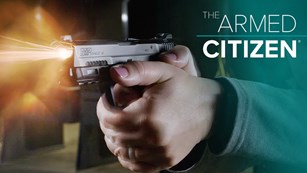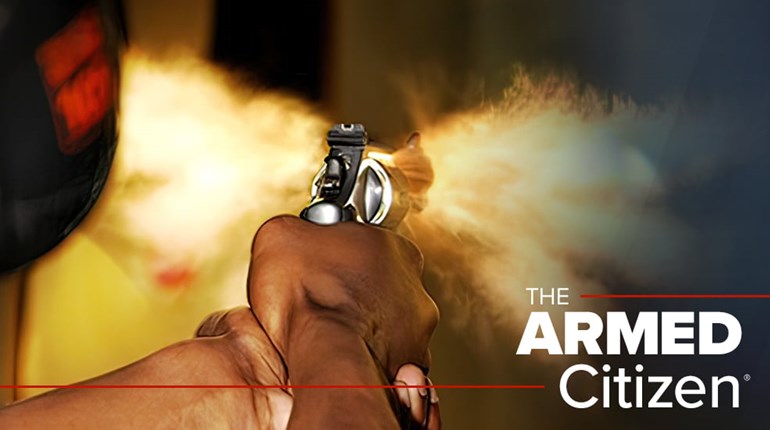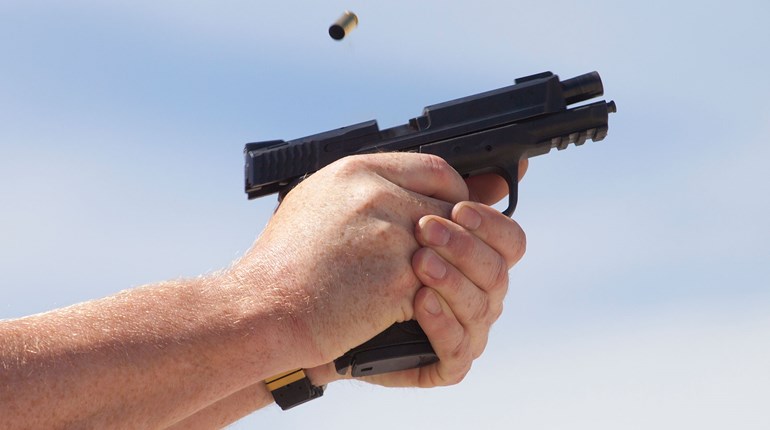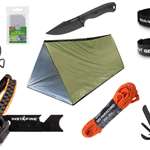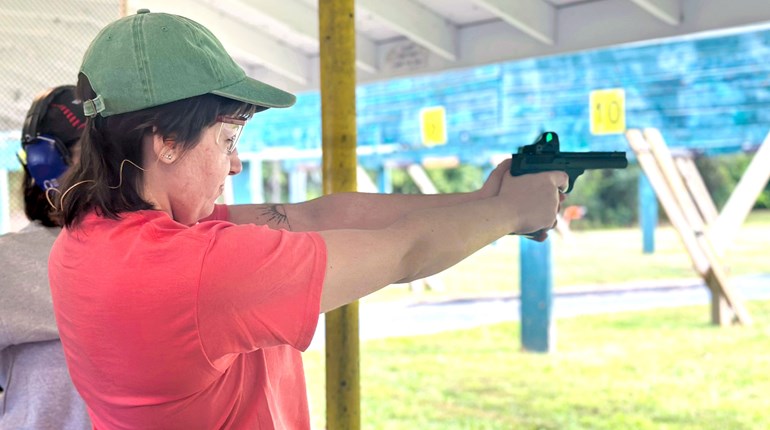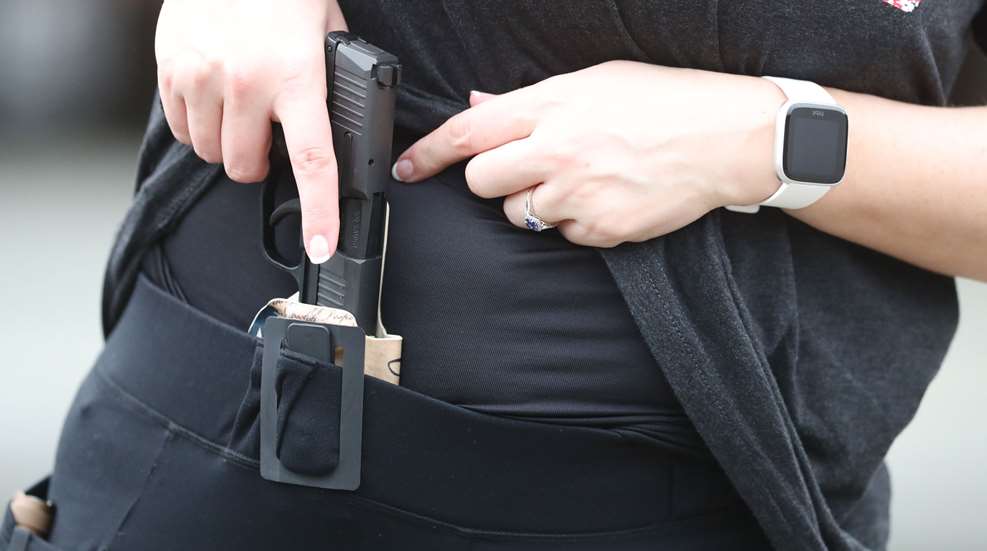
Maybe you’re a longtime shooter who has never before carried concealed. Maybe you’re brand new to the firearms thing, and you’re not sure where to start. No matter your situation, if you’re thinking it’s time for you to start concealed carrying, welcome! We celebrate anyone who wants to exercise her Second Amendment rights and take charge of her personal safety, but never forget that this is very serious business that shouldn’t be taken lightly. So before you strap on a gun and head out of the house, I want you to sit down and think about a few things to make sure you’re ready for the responsibility you’re about to take on.
1. What Are the Laws in Your State?
Firearms laws, and specifically concealed-carry laws, vary dramatically from state to state. What no one bats an eye at in one state can make you a felon in the next state due to drastically different legislature. You need to know what’s legal in your state, starting with how to get your permit in the first place or if one is required at all. Currently, about 20 states have some form of permitless carry, often called Constitutional carry. Some other states require only a background check in order to obtain a concealed-carry permit, while yet others require permit applicants to pass a special course and still others require a specific reason to carry.
Once you have your permit (if needed), you need to fully understand its restrictions. In all states, concealed carry is not permitted in federal buildings, which includes your local post office. Depending on where you are, your permit might not be valid in bars, on school property or elsewhere, and most states have restrictions on carrying while under the influence of alcohol or other substances. You also need to know if private property signs carry the force of law in your state. If the local mall is posted “No guns allowed” and you carry there anyway, the consequences can range from arrest (sign carries the force of law) to merely being asked to leave (sign does not carry the force of law—although if you refuse to leave, you can be charged with trespassing).
On top of all that, familiarize yourself with the laws of self-defense in your state regarding when and where you are legally allowed to defend yourself with your firearm. You need to know if you have a duty to retreat, understand if your state has a Castle Doctrine and/or a Stand Your Ground law, and be sure you’re clear on the meaning of “proportional response” in your locale.
2. Are You Skilled Enough to Make a High-Pressure Shot?
Most self-defense uses of a firearm take place at very short distances where accuracy isn’t as vital as some might suppose—but you still need to be able to make a good shot in what will be one of the most high-pressure, adrenaline-fueled situations of your life.
There are two aspects to this. First, the physical. Are you a good shot? If not, practice until you are, and seek training to refine your skills. If it’s in your budget, attending a course at a shooting school like Gunsite Academy can help you replicate high-pressure situations by running you through shoot houses and other simulations.
Second, the mental. You’re going to have tunnel vision physically and mentally in a self-defense situation. Can you keep your head clear, remember your training and make smart decisions and smooth movements in the moment of truth? Running through scenarios in your head now, when the pressure is off, will help you mentally prepare.
3. What Are You Willing to Do, Really?
This is a tough one to hash out, mentally, but you have to face it, and it’s better to face it now, in a calm frame of mind, than to hesitate when split seconds count. You must ask yourself: Am I mentally prepared to take another person’s life in defense of my own or my family’s? It’s easy to say yes, but you still must sit down and think about what it really means. Absorb the gravity of the idea and all the messiness that goes with it, including the legal aftermath. Understand that for most of us, if we’re ever forced into that situation, we will never be the same. We will live with it forever to some extent, no matter how justified.
Most of you who are reading a website like NRA Women are going to say, “Yes, I’m prepared to do whatever it takes to save my life or the life of someone I love,” and if you’re not able to say that, don’t carry a gun until you are. But the questions get murkier. Are you willing to draw your gun in a situation where you won’t fire it, in an attempt to scare away a bad guy or hold him for police? What about intervening to possibly save the life of a stranger—say, in a gas station robbery or a domestic dispute in a public park? Remember that things are not always as they appear, and all of these situations are fraught with complications. Don’t make yourself crazy with all the what-ifs, but do spend some time thinking about what you’re willing to do and what situations you’re willing to insert yourself into, and educate yourself on the potential consequences.
4. What’s Your Line in the Sand?
This is equally uncomfortable to think about, but it’s vital that you get a handle on it now rather than trying to grapple with decision-making in the midst of a high-stakes encounter. You must figure out where you draw your self-defense line in the sand. What’s your “I will not comply” or draw-your-gun moment? Obviously, there is no way to think through every potential situation, but consider a few of the possible scenarios and how you plan to respond (and also be aware that nuances in the situation and your own instincts might lead you to a different decision in the moment as the situation warrants).
One of the most common-sense lines in the sand is refusing to be relocated. If an assailant accosts you in a public location and tries to force you into a vehicle to be taken elsewhere, your situation is probably as good as it’s going to be right now, and it will only get worse if you go. You likely have nothing to lose, so this is where you might choose to make your stand, your fight-to-the-death moment. Another common line in the sand involves your children. If you’re the victim of an attempted carjacking with your kids in the backseat, most parents are going to draw a very hard line right there.
These are non-negotiables; situations where you absolutely will not comply because the potential consequences of complying are worse than the potential consequences of attempting to defend yourself. Pulling your gun on a mugger because you don’t want to give up your purse? Maybe not a smart line in the sand. If it seems the robber really does just want money, throw the purse away from you and the attacker will probably chase it. Then, you can escape and live to give a good police report later.
Of course, each one of us must make our own choices about what’s important to us and draw our own lines. It’s an uncomfortable thing to think about, but better now than later.




